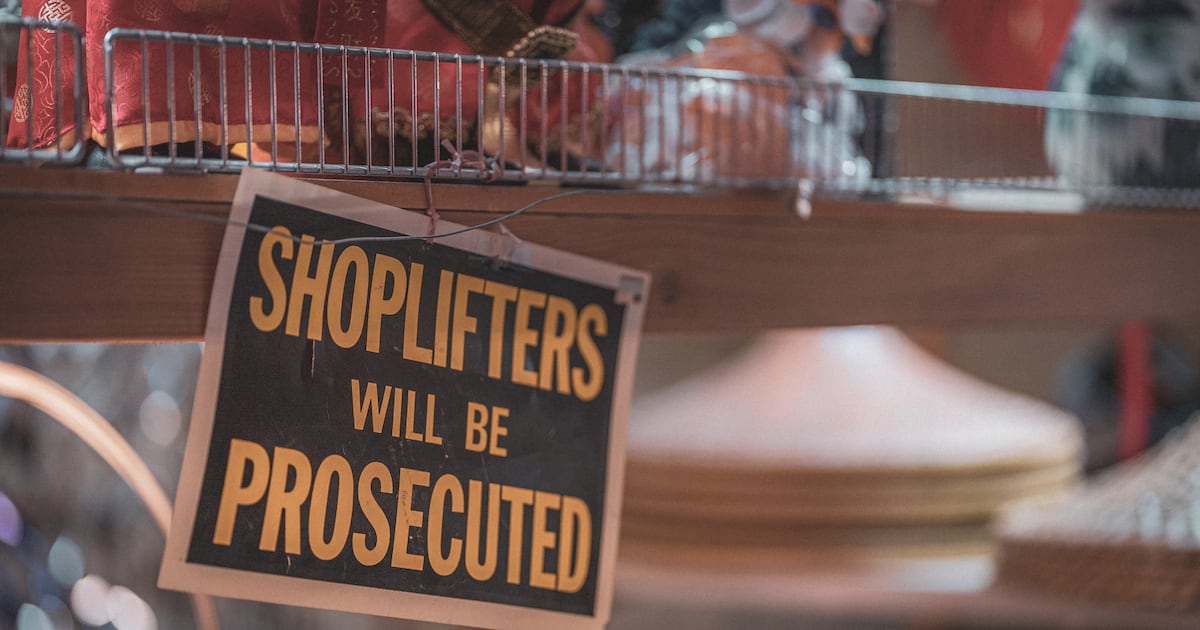Ontario Premier Doug Ford made headlines this week after sharing a story about a confrontation with an alleged shoplifter at Home Depot, but experts say residents shouldn’t necessarily follow his lead.
Ford spoke about the incident during an appearance at the Empire Club of Canada on Tuesday, telling attendees that he threatened to kick the alleged shoplifter’s “ass all over the parking lot.”
It happened at the Home Depot in Rexdale back in July, when Ford was picking up plants for his Muskoka cottage ahead of a visit with the prime minister.
“I said, ‘Screw this, I’m going after this guy,’” Ford recounted, sharing staff told him they weren’t allowed to go after the shoplifter themselves.
After pulling up behind the suspected shoplifter in his vehicle, Ford said he got out of the car and demanded to see what was in his bag.
“I said, ‘Buddy, I’m going to kick your ass all over the parking lot. Show me what’s in your bag,’” Ford said. “I did. I couldn’t help myself.”
Though the premier stepped in, is that the right course of action for other Ontarians to take when faced with a shoplifter in action?
Gail Super, associate professor at the University of Toronto who teaches a seminar on vigilante violence, questioned Ford’s proactiveness.
“In this case, Ford thinks that the right, the moral thing to do is chase after the immoral person who is stealing from Home Depot,” Super said.
“That’s a lot of what justifies vigilante violence is because people are trying to enforce the law on the one hand, but by doing that, they’re actually breaking a law … of well, who can make an arrest and what kind of force are you allowed to utilize when making an arrest and who’s allowed to punish.”
When conducting a citizen’s arrest, Canada’s Justice Department notes there are risk factors to carefully consider before doing so, like whether personal safety would be compromised, if there is reasonable belief the suspect is conducting a crime and the capability of turning the suspect over to police without delay once the arrest has been made.
Then, if making a citizen’s arrest, civilians must plainly state they are doing so and holding them until police arrive, avoid using force “if at all possible” and not to question the suspect or search their possessions.
“I wouldn’t recommend it, but if you make the personal decision to do so, do so with a lot of thought and a lot of caution,” CTV News’ public safety analyst Chris Lewis said.
Lewis, a former commissioner of the Ontario Provincial Police, says he may have done the same thing as what Ford had done in that situation but doesn’t recommend getting physically involved in a situation that could risk personal safety.
“I don’t want the public at large to think, ‘Wow, that’s what I’m going to do too.’ You really have to think about it and really assess your ability to help,” Lewis said.
Instead of jumping in, Lewis said Ontarians can still help by observing the situation, making note of the suspect’s licence plates and where their vehicle is headed, and getting a good description of what they look like so those details can be provided to the authorities.
Toronto police echoed Lewis’s advice, telling CTV News Toronto in a statement that witnesses could also let store staff know what they saw and consider leaving their contact information with them.
“Keep a safe distance and contact police,” Stephanie Miceli, of the Toronto Police Service, said in an email.
While Home Depot did not directly comment on what its store policies for staff in the event of shoplifting, a spokesperson said the safety of its customers and associates are “first priority.”
“We value our partnerships with local law enforcement who help to safeguard our stores and the communities we serve. Collaboration between government, law enforcement, and the retail industry is critical to develop sustainable, systemic solutions to combat organized crime in Canada,” The Home Depot Canada said in a statement.
Toronto police does not track shoplifting cases separately, as Miceli notes these reports typically fall under thefts under $5,000. That said, Miceli said there were more than 70,000 reports made for theft under $5,000 last year.

